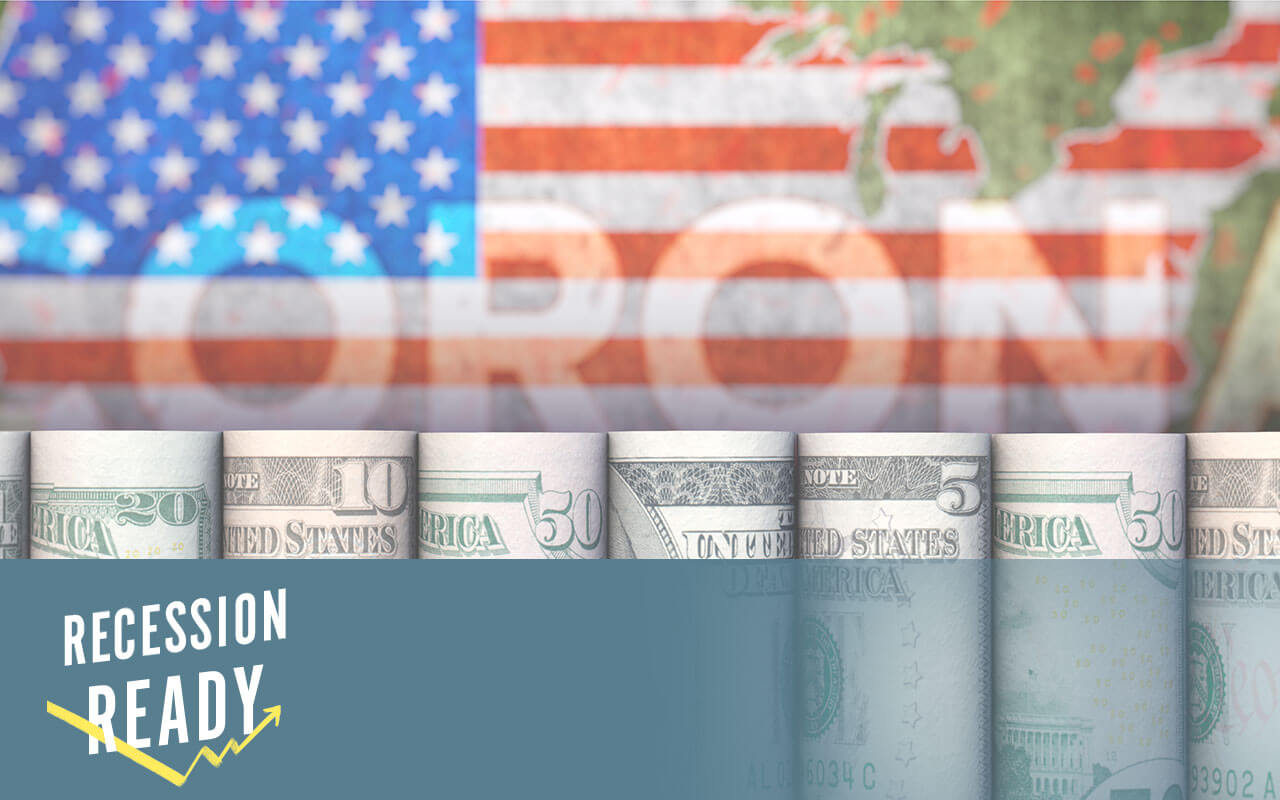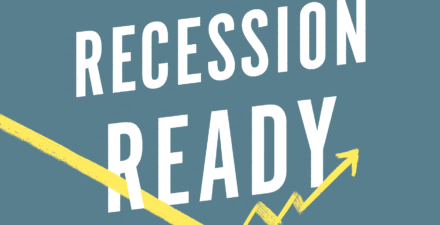One year later: Recession Ready and the coronavirus recession
Proposals put forth can help support communities, stabilize the economy amid coronavirus recession

One year ago, long before the risks of the new coronavirus and the ensuing recession enveloped our nation, the Washington Center for Equitable Growth, in partnership with The Hamilton Project, released Recession Ready: Fiscal Policies to Stabilize the American Economy. This book advanced a set of evidence-based policy ideas for shortening and easing the adverse consequences of the next recession with the use of triggers that would increase aid to households and states during an economic crisis and only recede when economic conditions warranted. Experts from academia and the policy community proposed six big ideas, including two new initiatives and four improvements to existing programs.
Since the book was released, 1 in 4 Americans have lost their jobs amid the coronavirus recession, inflicting significant harm on families at a time when many are coping with the loss of friends and loved ones among the more than 100,000 who have died in just 3 months. As the new coronavirus and COVID-19, the disease spread by the virus, continue to threaten lives and our economic stability, Equitable Growth and The Hamilton Project will co-host an anniversary event on June 8 featuring:
- Heather Boushey, president & CEO of Equitable Growth
- Jason Furman of The Hamilton Project, the Harvard Kennedy School of Government, and Equitable Growth Steering Committee member
- U.S. Rep. Don Beyer (D-VA)
- Philadelphia Mayor Michael Nutter
- Jay Shambaugh, director of The Hamilton Project and a senior fellow in Economic Studies at the Brookings Institution
They will discuss the significance of the policies laid out in Recession Ready and why providing aid to state and local governments is absolutely critical.
With state and local general fund revenues in freefall due to needed increases in spending on healthcare and related spending amid plummeting tax revenue, these governments’ budgets are on the precipice. State budget shortfalls could total more than $500 billion in a single year, nearly double what it was estimated states missed out on in the entire decade following the Great Recession. Fiscal requirements that states balance their budgets are already forcing governors to propose cuts in spending that will harm already struggling communities.
During the previous recession, these budget cuts proved seriously harmful to the economy. Shrinking state and local government budgets during the Great Recession reduced Gross Domestic Product by more than three times the size of the cuts themselves, according to estimates.
The proposals offered in Recession Ready are designed to help policymakers mitigate economic harm precisely at moments such as today. Though the policy proposals are focused on the federal government, which is the only entity that can deficit spend at a time of crisis, the policies themselves are designed to help individuals and families by providing support to state and local communities. They include:
- Increasing federal support for state Medicaid programs and Children’s Health Insurance Programs during economic downturns: This increased federal support would offset approximately two-thirds of state budget shortfalls. When a state’s unemployment rate exceeds a threshold level, the matching rate for these two programs would increase by 4.8 percentage points for every percentage point the state’s unemployment rate exceeded the threshold. Automatic increases in the state matching rate would reduce pressure on state budgets, reduce incentives to cut health spending when the need is large, and diminish the severity of economic downturns. As a state’s economy recovers, its matching rate would gradually and automatically phase down. A version of this trigger was proposed in Speaker of the House Nancy Pelosi’s (D-CA) alternative to the Coronavirus Aid, Relief, and Economic Security, or CARES, Act.
- Increasing Unemployment Insurance and macroeconomic stabilization during economic downturns: Increasing Unemployment Insurance participation and payments during downturns, as well as strengthening extended unemployment benefits, would provide a backstop for workers who lost their jobs through no fault of their own and are searching for new work. Unemployment Insurance, a joint state-federal program that is administered by states, acts as a macroeconomic stabilizer during recessions by supporting the consumer expenditures of those who experience unexpected drops in income during spells of involuntary unemployment, helping pump money back into state and local economies that would otherwise be lost. Sen. Michael Bennet (D-CO) released a recent proposal that would codify many of the recommendations made in this proposal, as did our upcoming event’s featured speaker Rep. Beyer, through the introduction of the Worker Relief and Security Act. The HEROES Act, which recently passed in the House, would extend the extra $600 of weekly federal unemployment benefits, which is set to expire in July, through January 2021, and includes protections for immigrants, gig workers, independent contractors, part-time workers, and self-employed people.
- Strengthening the Supplemental Nutrition Assistance Program as an automatic stabilizer during economic downturns: Limiting or eliminating SNAP work requirements, as well as increasing SNAP benefits by 15 percent, would increase resources available to individuals and localities in recessions. Increasing SNAP accessibility also would reduce the need for other state and local government-funded supports such as food banks. Sen. Bennet recently announced a plan drawing from this proposal, and the HEROES Act included an amendment that would increase SNAP benefits by 15 percent through September 2021.
- Providing direct stimulus payments to individuals during economic downturns: Providing direct payments that are automatically distributed when the unemployment rate increases rapidly would boost consumer spending that could help keep struggling businesses afloat. It would ease the burden on local social services as an increasing number of families struggle to afford rent and food. These direct payments would offset about half of the slowdown in consumer spending that occurs in a typical recession. A group of senators called for a similar proposal recently that would include an immediate $2,000 cash payment for every adult and child, which would decrease in amount and phase out over time as economic conditions improve. The HEROES Act proposes another round of a one-time $1,200 payment for individuals, with families of five receiving up to $6,000.
- Improving the countercyclicality of the Temporary Assistance for Needy Families program during economic downturns: Expanding federal support for basic assistance and creating an ongoing job subsidy program would help to reduce employment losses in state and local communities. These triggers would come with the assistance of a federal match rate in coordination with states and counties that administer the TANF program, including cash vouchers and emergency assistance to meet the basic needs of families during recessions and cover part of the cost of employers hiring and employing workers who would have not otherwise been hired into positions that would have not otherwise existed.
- Providing an automatic infrastructure investment program during economic downturns: Funding transportation projects at the state and local level through expanding the U.S. Department of Transportation’s BUILD funding would create new jobs in local communities through federal funding that typically constitutes a sizable share of state and local government spending, providing a valuable, long-lived benefit for firms and households alike.
Policymakers have already enacted more than $3 trillion in rescue measures designed to bolster public health and stabilize the economy, but more must be done. Absent further policy action, the nonpartisan Congressional Budget Office projects that by December 2021, the national unemployment rate will remain elevated at 8.6 percent, presenting a stunningly high cost to both individuals and families and state and local budgets. The policies outlined in Recession Ready are the best set of ideas to help policymakers avoid this devastation.
Please join the Washington Center for Equitable Growth and the Hamilton Project at our joint June 8 event to hear from Boushey, Furman, Rep. Beyer, Mayor Nutter, and Shambaugh to learn more about how these proposals are essential to ensuring an equitable and broadly shared recovery.






